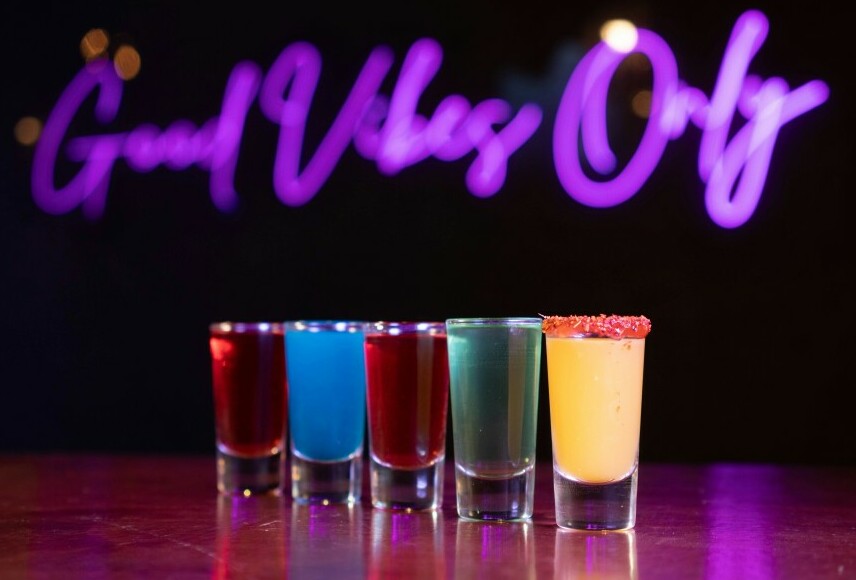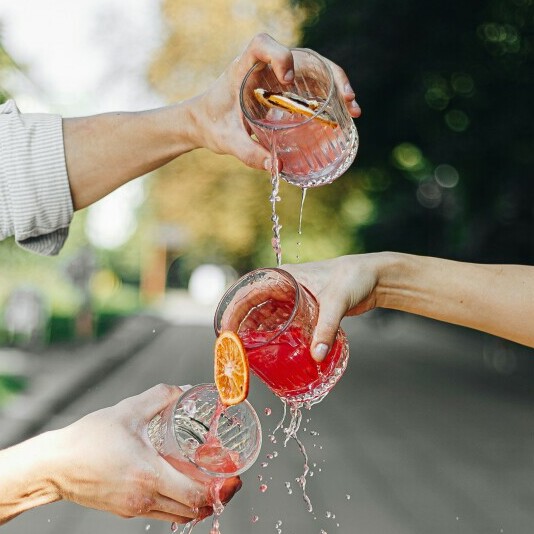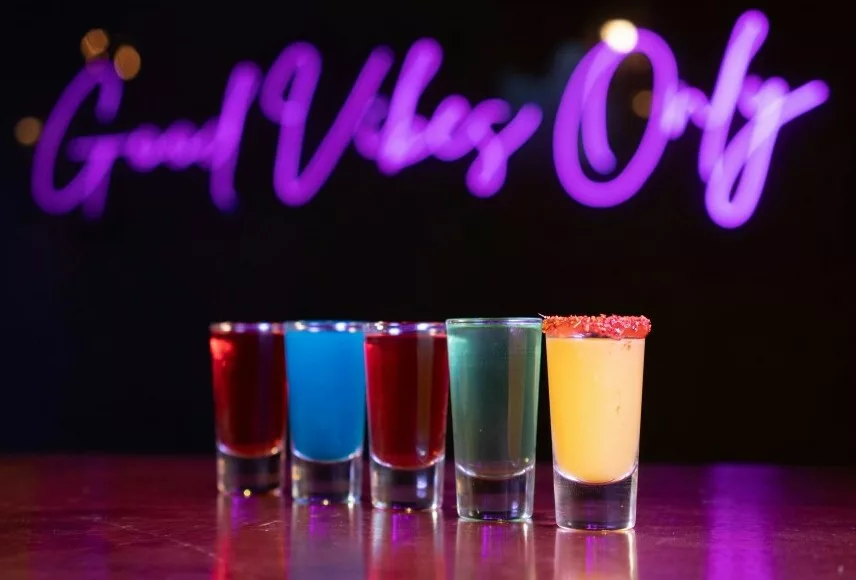
Mindful eating and mindful drinking means paying full attention to the experience of eating and drinking , savouring the flavours, textures, and aromas. It involves being aware of hunger and fullness cues without judgment. Similarly, mindful drinking is about appreciating beverages consciously, understanding the sensations they bring, and recognizing when we’re satisfied.
Being aware of what, when, and how we consume is crucial. Mindful consumption encourages us to understand our cravings, emotions, and triggers for eating or drinking. It’s a shift from automatic habits to conscious choices, fostering a healthier relationship with food and beverages.
Practicing mindfulness extends beyond meals. It enhances our overall well-being by reducing stress, improving focus, and increasing self-awareness. When we bring mindfulness into our consumption habits, we create a positive ripple effect, promoting a more balanced and satisfying lifestyle.
Understanding the Impact of Alcohol on Mindfulness
The consumption of alcohol initiates a complex interplay with brain function, intricately altering neurotransmitters that govern mood, cognition, and overall mental clarity. At its core, mindfulness, a practice centred on heightened awareness and being fully present, finds itself at odds when confronted with the influence of alcohol.
Short-Term Effects: The Immediate Ripple of Consumption
In the immediate aftermath of alcohol consumption, a wave of relaxation and euphoria may sweep in, providing a semblance of immediate gratification. However, this pleasant facade conceals a more profound impact. Alcohol, even in the short term, weaves a tapestry of impairment—diminishing judgment, compromising coordination, and clouding decision-making faculties. While it offers a momentary escape, it subtly erodes the pillars of mindful thinking.
Long-Term Consequences: The Lingering Shadows of Excess
Prolonged and excessive alcohol consumption unfurls a host of long-term consequences, casting shadows on holistic well-being. Beyond the fleeting moments of pleasure, the persistent overindulgence in alcohol paints a grim picture, potentially leading to severe health issues. Liver damage, memory loss, and mental health challenges emerge as formidable adversaries, challenging the very essence of mindfulness.
Contradiction between Mindfulness and Intoxication: Navigating the Abyss
The heart of the contradiction lies in the essence of mindfulness itself—a practice that flourishes in the realm of clear thinking, conscious choices, and an unwavering presence in the current moment. On the flip side, alcohol, with its intoxicating embrace, introduces a fog that clouds judgment and inhibits the very awareness that mindfulness seeks to cultivate.
Striking a Delicate Balance: Harmonizing Enjoyment and Mindfulness
The challenge is not in shunning alcohol entirely but in navigating a delicate balance. Mindfulness, as a philosophy, encourages a profound connection with the current moment—a state that intoxication can disrupt. The paradox lies in reconciling the occasional enjoyment of alcohol with the overarching goal of maintaining mindfulness.
In this delicate dance, the key lies in understanding that mindfulness is not rigid, but adaptive. It calls for a conscious effort to strike a balance, allowing room for occasional indulgence while safeguarding the core tenets of mindfulness. By doing so, one can weave a tapestry where enjoyment and presence coexist, offering a nuanced and holistic approach to overall well-being.

Strategies for Mindful Drinking
Balancing Enjoyment and Health:
Mindful moderation means understanding that alcohol can be a part of social enjoyment without being the sole focus. It’s about finding the sweet spot where you can savour the experience without compromising your physical and mental health.
Knowing Your Limits:
Understanding your personal limits is key. This involves recognizing how much alcohol your body can handle, both physically and mentally. It’s an ongoing process of self-discovery that aligns with the principles of mindfulness.
Reflection and Adaptation:
Regularly reflect on your drinking habits and be open to adapting them based on your evolving understanding of what is mindful for you. This adaptive approach ensures that your relationship with alcohol remains aligned with your broader well-being goals
Recognizing Triggers and Mindful Coping Strategies:
Being aware of the triggers that may lead to excessive drinking is a crucial aspect of mindful alcohol consumption. This involves identifying emotional, social, or environmental cues that might prompt overindulgence. Once recognized, individuals can develop mindful coping strategies, such as finding healthier alternatives, engaging in non-drinking activities, or seeking support from friends or professionals.
Moderation and Its Role in Mindful Alcohol Consumption:
Mindful alcohol consumption emphasizes moderation as a key principle. This means drinking in a way that avoids excess and allows one to remain present and in control. Moderation involves pacing the consumption of alcohol, being attentive to its effects on the body and mind, and making conscious choices to avoid reaching a point of intoxication. By practicing moderation, individuals can align their alcohol consumption with their mindful intentions, fostering a harmonious approach to drinking within the framework of overall well-being
Navigating Social Dynamics and Mindful Choices

In the intricate landscape of social dynamics, peer pressure and cultural norms wield a profound influence on our drinking habits. The desire to conform, fit in, or align with societal expectations often propels individuals toward choices that may not align with their mindful intentions. It’s a delicate dance where external influences converge with personal inclinations, shaping the narrative of alcohol consumption.
Staying Mindful Amidst Social Currents: Navigational Tips
Staying true to mindful principles in social settings requires a strategic approach. The first thread in this intricate weave involves cultivating self-awareness. Understanding one’s limits, motivations, and the impact of external influences is akin to holding the compass in this social journey. It’s about fostering an internal dialogue that acts as a guiding star amid the sea of societal currents.
Additionally, mindfulness in social contexts calls for a conscious effort to be present in the moment. Engaging in meaningful conversations, savouring the atmosphere, and being attuned to the surroundings contribute to an enriched experience that transcends the need for alcohol as a social lubricant. It’s about recognizing that genuine connections thrive on authenticity rather than the contents of a glass.
Empowering Choices: Nurturing a Culture of Alternatives
A pivotal aspect of mindful social consumption lies in empowering choices. Opting for non-alcoholic beverages when circumstances permit is a testament to the strength of individual agency. It’s not about succumbing to the societal currents but rather charting a course that aligns with personal values and well-being.
Choosing alternatives isn’t a compromise; it’s a declaration of autonomy. Whether it’s indulging in a refreshing mocktail or sipping on a flavourful non-alcoholic beer, these choices not only cater to mindful preferences but also contribute to reshaping the broader culture around social drinking. It’s a ripple effect—a small yet impactful gesture that echoes the power of mindful choices in shaping our social landscape.
Conclusion: Weaving a Tapestry of Empowered Social Consumption
In navigating the labyrinth of social dynamics, mindful choices act as the loom upon which a tapestry of empowered consumption unfolds. Peer pressure and cultural influences become threads to be acknowledged, understood, and, when necessary, gently unraveled. It’s a journey of self-discovery, resilience, and the continuous reinforcement of the mindful principles that guide us through the ebb and flow of social currents.
Thank you for the time you invested in reading this, please feel free to share your opinions here.
Cheers!



Hi Ela,
This is a great article, I enjoyed reading it. When it comes to alcohol, I have been on both sides, the excessive one and the moderate one. It has been a while since I have reduced the consumption of alcohol. For the last few years, I learned to enjoy my occasional drinks more. This gravitates toward mindful drinking since I am focused more on that single drink I will have. I really want to savor it and have the whole experience instead of just drinking it. This way I rather have something of higher quality that I will enjoy more in smaller amounts versus having more drinks and getting lost in the experience.
Keep up the good work.
Dan
Dear Ela,
Thank you for sharing your insightful article on mindful eating and drinking, especially regarding the effects of alcohol. As someone who enjoys a few light beers weekly, I found your perspectives on mindful drinking particularly resonant. Your emphasis on balance, self-awareness, and the importance of moderation is a valuable reminder that we can enjoy life’s pleasures, like a good beer, while still being mindful of our overall well-being. Your strategies for mindful drinking, such as knowing personal limits and recognizing triggers, are practical and empowering. They serve as a helpful guide for navigating social situations and making conscious choices that align with our health and mindfulness goals. I have seen this over the past couple of weeks with me where I have still been able to lose the weight that I have been wanting to while still being conscious of not going overboard with anything to do with drinking. I appreciate your balanced approach to the topic, acknowledging the joy that can come from moderate alcohol consumption while also highlighting the potential risks of excess. It’s a reminder that mindfulness is about being present and making informed choices, rather than strict abstinence or judgment. hank you for the thoughtful and informative article. It’s a great resource for anyone looking to incorporate mindfulness into their drinking habits and overall lifestyle.
Jeff